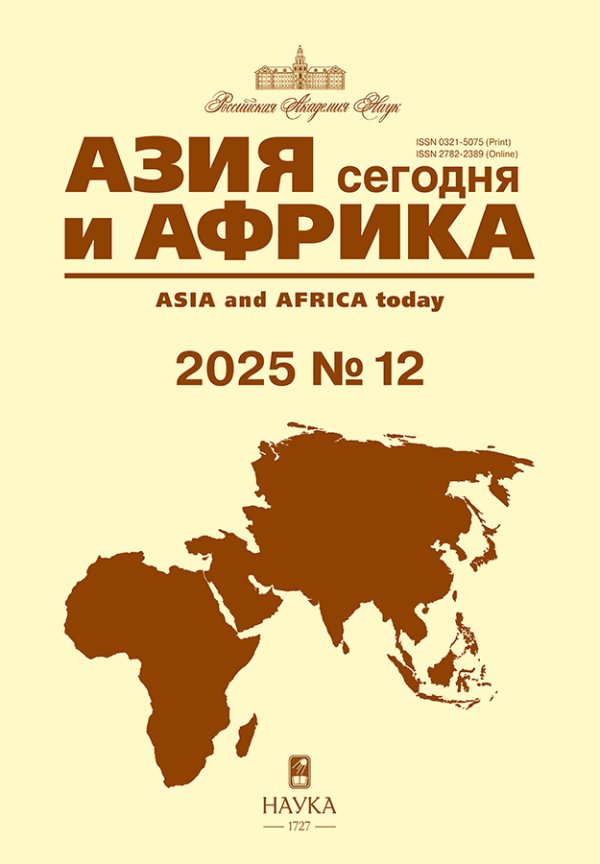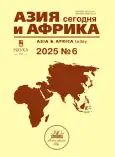Цифровой Шелковый путь Китая: возможности и риски для развивающихся стран
- Авторы: Войтиков К.Н1
-
Учреждения:
- МГУ им. М.В. Ломоносова
- Выпуск: № 6 (2025)
- Страницы: 70–77
- Раздел: Трибуна соискателя
- URL: https://journal-vniispk.ru/0321-5075/article/view/301748
- DOI: https://doi.org/10.31857/S0321507525060081
- ID: 301748
Цитировать
Аннотация
Цифровой Шелковый путь (ЦШП) является частью инициативы «Один пояс – один путь», предложенной председателем КНР Си Цзиньпином в 2013 г. Целями ЦШП являются обеспечение инклюзивного экономического роста, достижение целей устойчивого развития ООН и построение «Сообщества единой судьбы человечества» в киберпространстве. Взаимодействия в рамках ЦШП включают цифровую взаимосвязанность, развитие трансграничной электронной торговли, цифровизацию экономики, создание и распространение технических стандартов и решение вопросов кибербезопасности и цифрового суверенитета. ЦШП предоставляет странам-участницам уникальные возможности по преодолению цифрового барьера и модернизации экономики, но при этом привносит риски, связанные с кибербезопасностью, конфиденциальностью данных и формированием технологической зависимости от Китая. Статья посвящена анализу соответствующих рисков и возможностей и разработке рекомендаций по формированию государственной политики в отношении участия в ЦШП, обеспечивающей для развивающихся стран наиболее благоприятный экономический эффект.
Об авторах
К. Н Войтиков
МГУ им. М.В. Ломоносова
Email: konstantin.voytikov@gmail.com
аспирант кафедры политологии Востока факультета глобальных процессов Москва, Россия
Список литературы
- Agbebi M., Xue G., Yu Z. China-powered ICT infrastructure: Lessons from Tanzania and Cambodia. African Perspectives Global Insights Policy Briefing. 2021. Vol. 252.
- Beijing Initiative on the Belt and Road International Digital Economy Cooperation. Ministry of the Foreign Affairs of the People’s Republic of China. https://www.mfa.gov.cn/eng/zxxx_662805/202310/P020231020460592932463.pdf (accessed 05.03.2024)
- Cheney C. China’s Digital Silk Road: strategic technological competition and exporting political illiberalism. Issues & Insights, Working Paper WP8, Vol. 19. Pacific Forum. 2019. https://pacforum.org/wp-content/uploads/2019/08/issuesinsights_Vol19-WP8FINAL.pdf (accessed 10.03.2024)
- Gagliardone I. China, Africa, and the Future of the Internet. London: Zed Books, 2019. 192 p.
- Гамза Л.А. Цифровой Шёлковый путь Китая. Проблемы Дальнего Востока. 2022. Вып. 2. С. 63–79. doi: 10.31857/S013128120019578-6
- Gamza L.F. 2022. China’s Digital Silk Road. Far Eastern Studies. Iss. 2. Pp. 63–79. (In Russ.). doi: 10.31857/S013128120019578-6
- Heeks R., Ospina A.V., Foster C., Gao P., Han X., Jepson N., Schindler S., Zhou Q. China’s digital expansion in the Global South: Systematic literature review and future research agenda. The Information Society. 2024. Vol. 40. Iss. 2. Pp. 69–95. doi: 10.1080/01972243.2024.2315875
- Hernandez K. Achieving complex development goals along China’s Digital Silk Road. K4D Emerging Issues Report. Brighton, UK: Institute of Development Studies, 2019. 43 p.
- Kliman D., Grace A. Power Play. Washington: Center for a New American Security. September 2018. 39 p.
- Seaman J. China and the new geopolitics of technical standardization. Notes de l’Ifri. 2020. Vol. 34. Pр.1–34.
- Segal A. China’s alternative cyber governance regime. Council on Foreign Relations. March 13, 2020. https://uscc.gov/sites/default/files/testimonies/March%2013%20Hearing_Panel%203_Adam%20Segal%20CFR.pdf (accessed 27.03.2024)
- Sen G., Bingqin L. The digital silk road and the sustainable development goals. IDS Bulletin. 2019. Vol. 50. № 4. Pp. 23–46. doi: 10.19088/1968-2019.137
- Teng Kang. Economic impact of Internet and information development on countries along the Belt and Road Route. Journal of Physics: Conference Series. IOP Publishing. 2020. Vol. 1533. № 2. P. 022107. doi: 10.1088/1742-6596/1533/2/022107
- Triolo P., Allison K., Brown C., & Broderick K. The Digital Silk Road: Expanding China’s Digital Footprint. Eurasia Group. April 8, 2020. https://eurasiagroup.net/files/upload/Digital-Silk-Road-Expanding-China-Digital-Footprint1.pdf (accessed 24.03.2024)
- Vila Seoane M.F. Chinese and U.S. AI and Cloud Multinational Corporations in Latin America. Towards an International Political Economy of Artificial Intelligence. Ed. by Keskin T., Kiggins R.D. (eds). International Political Economy Series. Palgrave Macmillan, Cham. 2021. Pp. 85–111. doi: 10.1007/978-3-030-74420-5_5
- Vision And Actions On Jointly Building Silk Road Economic Belt And 21st-Century Maritime Silk Road. Belt and Road Portal. March 30, 2015. https://eng.yidaiyilu.gov.cn/p/1084.html (accessed 20.03.2024)
- Xi Jinping. Full text of President Xi’s speech at opening of Belt and Road forum. Belt and Road Portal. May 14, 2017. https://eng.yidaiyilu.gov.cn/p/13299.html (accessed 23.03.2024)
- Zhou Taidong, Xue Qi. The Digital Silk Road and Southeast Asian Countries. The Fourth Industrial Revolution and the Future of Work: Implications for Asian Development Cooperation. Ed. by Anthea Mulakala. Sejong-si: KDI School of Public Policy and Management. December 2020. Pp. 132–164.
Дополнительные файлы











